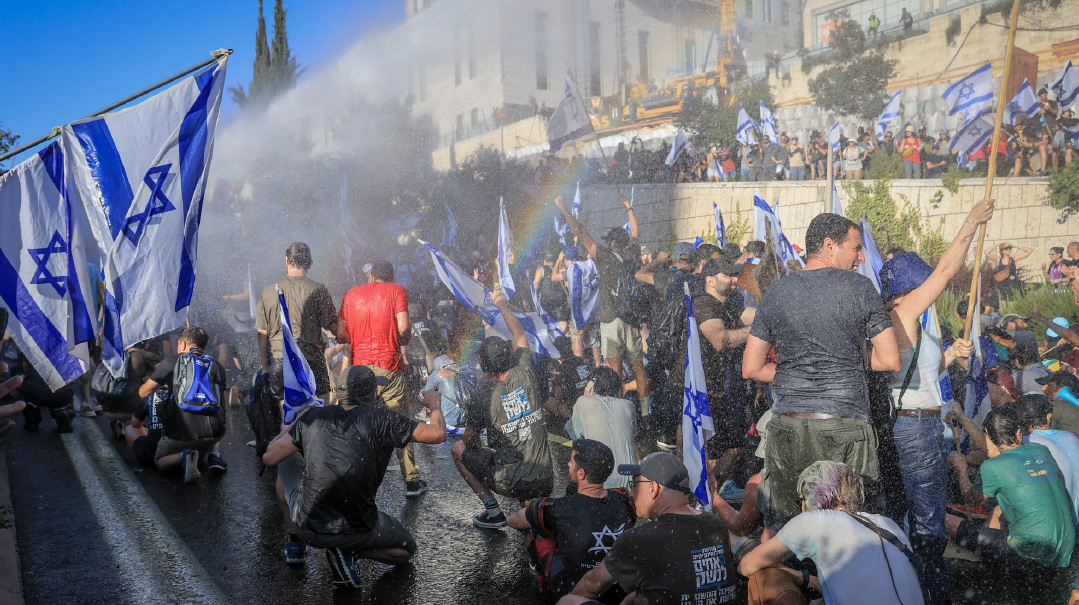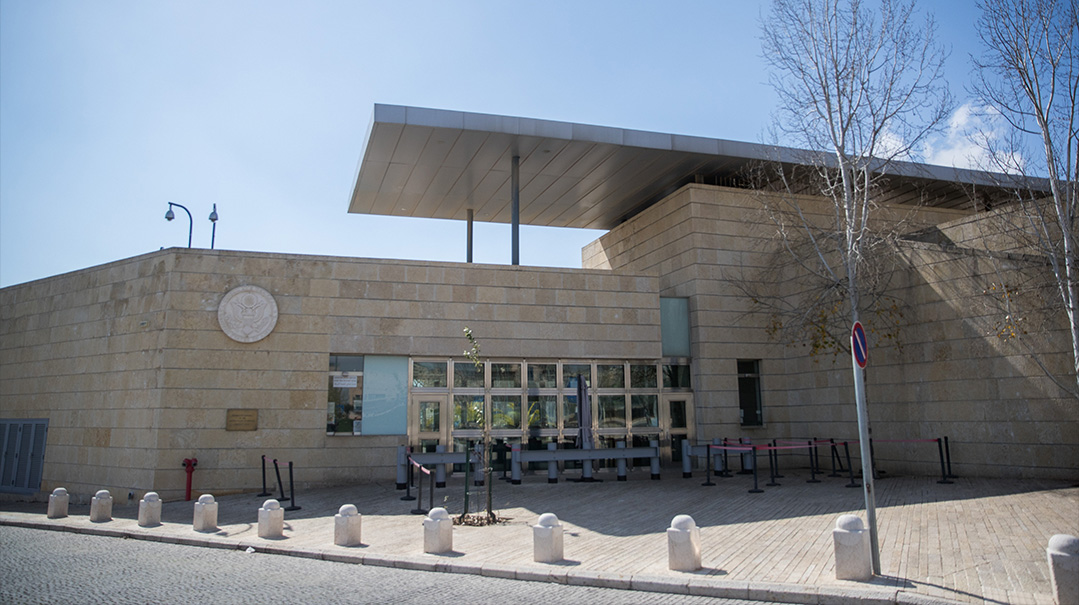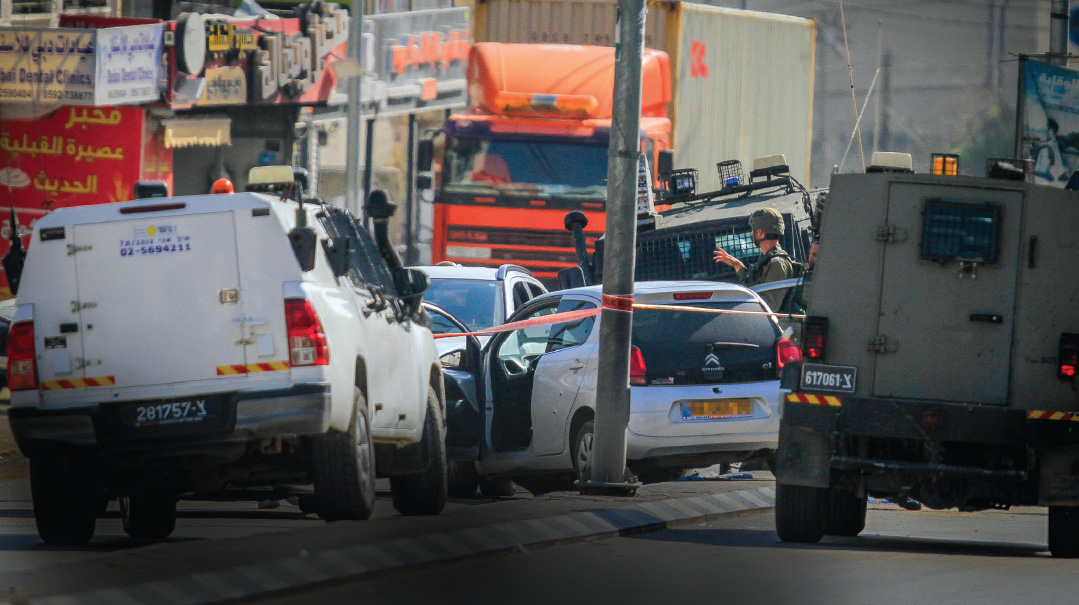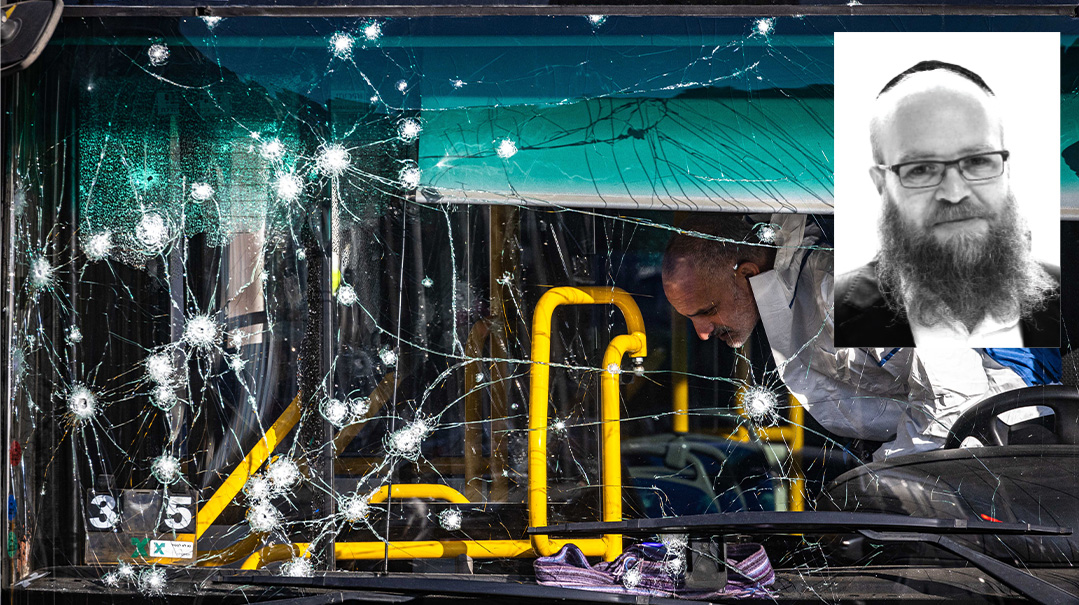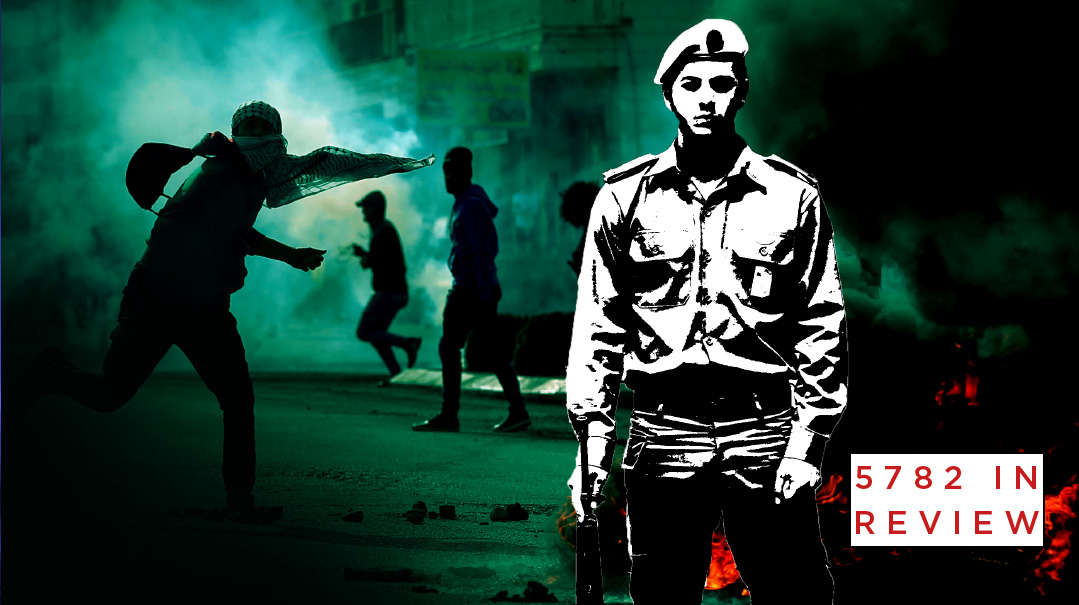Kosel Attack Will Force Tough Decisions

A nation already on edge endures two bus tragedies
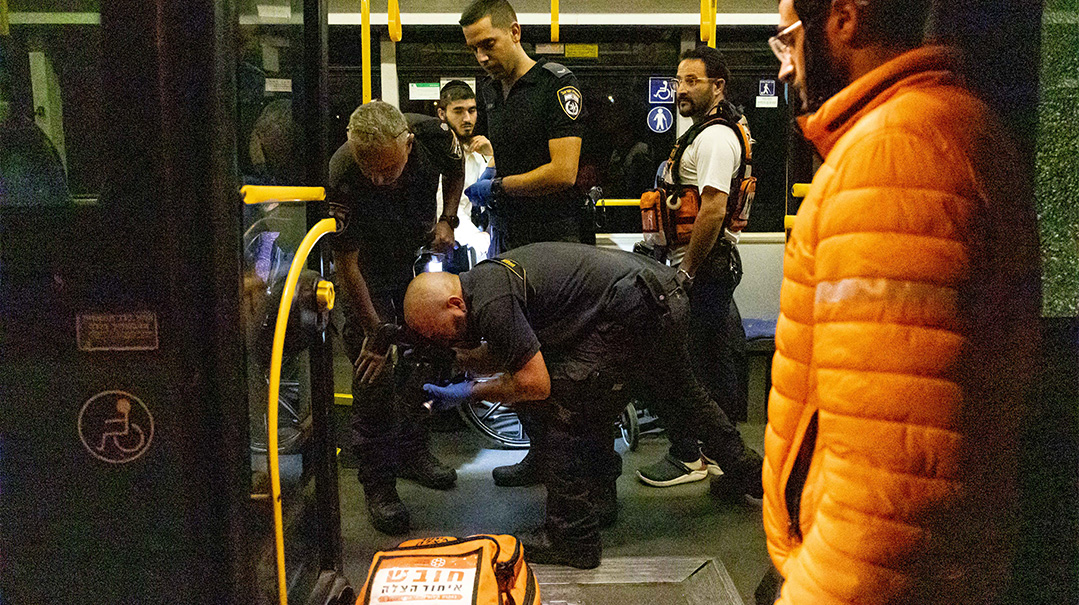
The Motzaei Shabbos terror attack near the Kosel took the Israeli security establishment by surprise, and according to one retired IDF commander, it pulls back the veil on a looming problem in predominantly Arab eastern Jerusalem.
Eight people were wounded in the attack, including a 35-year-old pregnant woman. The woman underwent an emergency C-section to deliver the baby, and both are in serious condition. A 60-year-old man is also in serious condition; he and four of the other victims are American citizens.
The terrorist, Amir Sidawi, was an East Jerusalem resident with a blue passport.
In general, Arabs in East Jerusalem are considered extremely anti-Israeli, and most identify as Palestinian. Hence, while East Jerusalem residents can apply for Israeli citizenship, only 5 percent have done so, the rest holding the status of “permanent residents.”
Although they refuse to acquire Israeli citizenship, and consider Arabs who do “traitors,” they’re full of complaints about discrimination in every area, from construction permits and demolitions to the heavy hand of the border police. The harassment to which young Arabs from East Jerusalem routinely subject Jews walking to the Kosel is viewed as a legitimate part of their struggle for the city.
Retired major-general Gadi Shamni, formerly the commander of the IDF Central Command and Netanyahu’s military secretary, argues that Israel simply can’t handle the 350,000 Palestinians who live in eastern Jerusalem, whether from the standpoint of security or of providing them services.
“We need to make a tough decision about the municipal boundaries of Jerusalem and hand over the eastern neighborhoods of Jerusalem to the PA,” he says.
As proof that Netanyahu agrees with this, Shamni cites his past statement, “Qalandia is not Jerusalem.” He says the same view was held by former mayor Nir Barkat and former Jerusalem affairs minister Ze’ev Elkin, who proposed turning the villages over the fence into a separate municipality, distinct from Jerusalem.
All attempts by previous Israeli governments to integrate this Arab population have failed utterly. Islamic Jihad and Hamas are very popular in East Jerusalem and have networks in every neighborhood.
At the same time, Arab activists have waged legal battles to receive the financial, medical, and social services they’re entitled to as municipal residents. The 65,000 residents annexed to Jerusalem in 1967 have now grown to 350,000, nearly 40 percent of the city’s total population.
Sidawi opened fire on an Egged Number 3 bus on Maaleh Hashalom Street, and then on a private vehicle in the Kever David Hamelech parking lot, before fleeing the scene. The bus driver had opened the doors to allow a wheelchair-bound passenger to board when the terrorist opened fire on passengers.
Six hours later he hailed a taxi near Shaare Zedek Hospital — where several victims were taken — and asked to be taken to an address that proved to be a police station. The cab driver could see his passenger was nervous, but had no clue who he was. The police briefly interrogated the driver.
“They quickly realized I had nothing to do with the attack,” the driver told Israeli media. “The cop who questioned me said, ‘G-d loves you.’ I looked back and saw that the terrorist had left a loaded gun on the back seat. I could have taken a bullet to the head, it was a miracle.”
(Originally featured in Mishpacha, Issue 924)
Oops! We could not locate your form.

